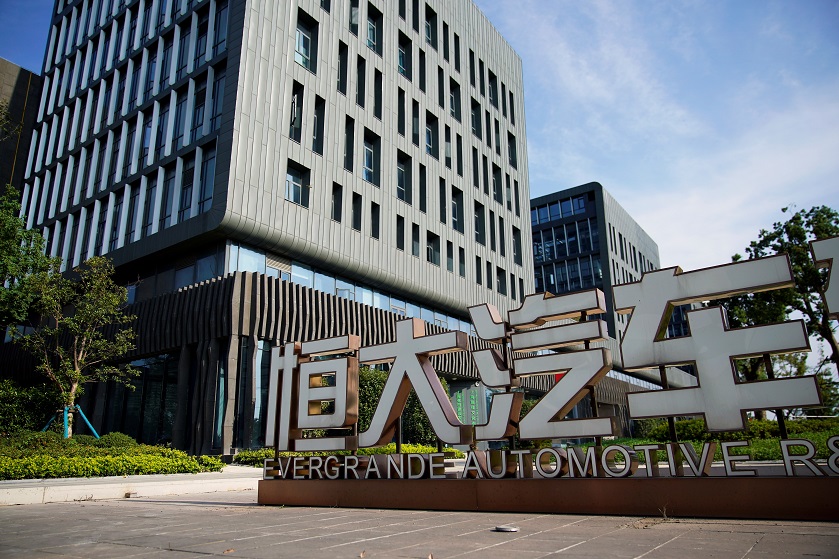India’s and China’s approaches to wealth destruction seem drastically divergent.
The Evergrande meltdown has important repercussions and learnings from the perspectives of regulatory intervention and continuity in rule-of-law. Beyond the obvious financial fallouts of this crisis, it raises questions on the sustainability of high margins of Chinese businesses. With a Thanos-esque snap, the Chinese government decided to crackdown on rising real estate prices, with an attempt to align the sector’s vision to that of the government’s vision for the nation. It was argued that an average citizen couldn’t afford exorbitant home prices, and that “housing is for living, not for speculation”; and hence, immediate action was to be taken against too-big-to-fail real estate companies. The risks were known—that it could be disastrous for the 100,000+ employees of the company, leave huge questions about their unfinished projects, drive Evergrande insolvent, and perhaps even trigger a domino collapse across bourses.
Markets reacted steeply to this forced blip, with first and second order enterprises losing tremendous value. Indices around the world took a beating on the potential collapse of one of China’s biggest companies.
PIRATES ARE COOL, BUT EXPLORERS SURVIVE
The subject of wealth creation has been discussed immensely. Wealth destruction, not so much. Underdog stories and optimism bias aside, how nations react when wealth is destroyed, is a huge factor in businesses’ location strategy. For the business community with one eye on the upside, the other plays what-if scenarios of the downside.
Capital, especially low risk capital, seeks calmer waters instead of choppy seas. That calm might just be predictability in regulation, and rule of law.
Rule of law is a legal maxim that suggests that no one is above the law and governmental decisions must be made only by applying known legal and moral principles. It further postulates that laws should be consistent and predictable, precisely because people (and businesses, investors, etc) take rational decisions based on those laws and regulations.
While sovereigns and governments are free to determine what policy environments they offer the business community, it is relatively uncommon to force discontinuity in business regulations.
Something similar happened in India in the Vodafone taxation case. The government not only changed tax laws, but changed them retrospectively from 1962 through the Finance Act, 2012 to overturn the Apex Court verdict in favour of Vodafone. After much international condemnation, India has recently done away with the large parts of the controversial 2012 amendment.
It must be emphasised that this is not a case for deregulating the market economy. In fact, having strong regulations in place, is essential for an economy to grow. As an example, regulations like Competition Laws/Anti-Trust Laws are beyond controversy and are universally accepted as essential to restricting monopolistic behaviour, and protecting consumer interest. A large part of diplomatic, multilateral and track-2 conversations are focused around aligning business regulations. In an interdependent world, knee-jerk and unilateral policy changes are getting rarer by the minute.
THE ELEPHANT GUARDS THE JUNGLE WHILE THE DRAGON BREATHES FIRE
Consider India’s inclusive and balanced approach on a similar issue. India’s real estate sector has been no less of a challenge. India enacted the Real Estate (Regulation and Development) Act, 2016, which addresses the same challenge in a more comprehensive manner by providing homebuyers a specialized dispute addressal mechanism, and penalties in case of project promoters’ misconduct.
Beyond just real estate, India adopted a comprehensive approach to insolvencies and bankruptcies through the Insolvency and Bankruptcy Code (IBC) 2016. While IBC was originally intended to tackle “bad loans” affecting the banking system, it has now evolved into a one stop solution for resolving insolvencies. Multibillion dollar cases like Essar Steel, Lanco Infra, and Jet Airways were solved amicably and in a time-bound fashion. Something that would have been unimaginable a decade ago.
The message here is simple. India has proactively and transparently sent a message to the business community that when things go south, as they sometimes do, you will have a fair, transparent, and expedient process of moving on. More importantly, you are unlikely to get burnt from a knee-jerk, post facto decision taken from inside a black box that has been prettied up with pink glitter.
The Chinese government has been flexing its muscles lately. The Evergrande situation is not an isolated event. Limiting the number of hours children can play video games (the gaming industry is one of China’s fastest growing), curbing the growth of tuition centres and education companies, and other interventionist moves have been part of a well-orchestrated and deliberate strategy to force businesses to align their objectives with the nation’s. Compared to the gun-slinging, every-man-for-himself, individualistic approach of the West, China is propping a model where business enterprises are directed and routed to play a specific role in the nation’s strategic vision.
The trillion dollar question is, does this unpredictability shake off global investors from the China dream? The 5-trillion-dollar question is: Is India ready to leverage this opportunity?
Anuraag Saxena is a board advisor and public affairs expert. He tweets @anuraag_saxena.
Raghav Pandey is a Visiting Fellow at India Foundation and an Assistant Professor of Law at NLU Mumbai.

